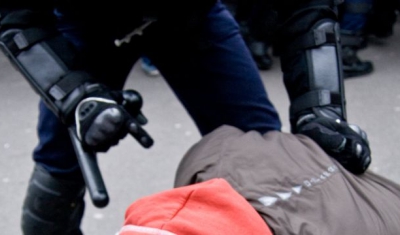While law enforcement officials frequently use less-lethal weapons during assemblies, international guidance on their design, production, procurement, testing, training, transfer, and use was lacking.
The United Nations Human Rights Guidance on Less-Lethal Weapons in Law Enforcement issued by the Office of the United Nations High Commissioner for Human Rights (OHCHR) – the outcome of research and broad consultations carried out under the auspices of the Geneva Academy and the University of Pretoria – fills this gap.
Promoting Lawful Use and Accountability
Less-lethal weapons include police batons, chemical irritants such as pepper spray and tear gas, electroshock weapons such as TASER, and water cannon. They are defined in the Guidance as weapons whose ordinary use offers a substantially reduced risk of death when compared to conventional firearms.
Based on international law, in particular, IHRL and law enforcement rules, as well as good law enforcement practice, the Guidance provides direction on what constitutes lawful and responsible design, production, transfer, procurement, testing, training, deployment, and use of less-lethal weapons and related equipment, and promotes accountability.
It is aimed at a wide range of stakeholders, particularly states and law enforcement agencies, as well as weapon manufacturers, human rights mechanisms, private security companies, police oversight bodies, and human rights defenders, along with individuals seeking a remedy for human rights violations caused by less-lethal weapons.
Research and Consultations under the Auspices of the Geneva Academy and the University of Pretoria
This Guidance is the outcome of research and broad consultations carried out under the auspices of the Geneva Academy and the University of Pretoria, in particular, its Institute for International and Comparative Law in Africa (ICLA) and its Centre for Human Rights.
A group of experts – academics, representatives of United Nations (UN) agencies and other international organizations, UN special procedures mandate-holders, members of UN treaty bodies, law enforcement officials, experts in police oversight, representatives of non-governmental organizations, civil society and manufacturers – helped to draft the Guidance. An inclusive consultation process allowed a broad range of stakeholders to provide input and comment on successive drafts, whether in writing or during expert meetings and consultations in Cambridge, Geneva, and Pretoria.






